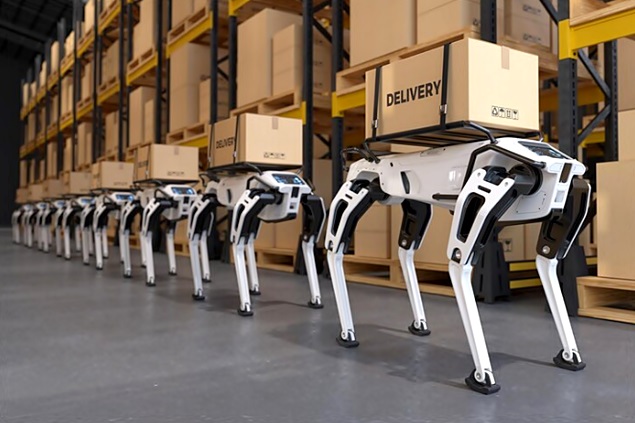1063

With the current proposal to revise the Industrial Emissions Directive (IED), the EU executive is making efforts to focus more on agriculture, treating it as an industry, according to the three Members of the European Parliament leading the dossier.
A set of initiatives
Benoît Lutgen is a Belgian Christian-Democrat MEP and rapporteur for the revision of the Industrial Emissions Directive (IED) for the European Parliament's Committee on Agriculture (AGRI). French Liberal MEP Jeremy Decerl and Italian Socialist MEP Paolo De Castro are both alternative rapporteurs for the IED within the AGRI committee.
The current EU Green Deal is gearing up to address climate change. We approved the agreement in 2020 to make the European Union climate-neutral by 2050, fully committing to this goal.
To this end, along with the Green Deal, a set of policy initiatives is being developed, such as the revision of the Industrial Emissions Directive (IED).
This revision aims to achieve the EU's ambition of zero pollution by reducing emissions from large industries such as power plants, refineries, waste treatment and incineration, metal production, cement, glass, chemicals, etc.
The EU Commission wants to treat cows like an industry.
How? With the brilliant idea of subjecting them to the same closed-loop production process that captures most emissions from factories through mitigation techniques, where water and air do not leave the facility until they are purified.
And here is our problem: most cows live outside, in pastures, and are not enclosed in a box all year round.
The ammonia and methane they emit can only be captured if farmers are forced to put their animals in an enclosed environment devoid of natural light.
We say no! We say no because we have seen how poorly it worked for the pork and poultry sectors.
According to the European Commission, the Industrial Emissions Directive has been controlling emissions from the pork and poultry sectors since 2010 and has good results to show for it.
Did it result in less concentration, more diversification, and better animal welfare for pigs and poultry? Not even.
Other solutions are needed
With the sole and narrow objective of mitigating emissions, applying the Industrial Emissions Directive to animals could require large-scale industry solutions: animals in enclosed barns and devices to purify the air in these barns.
The cost of such an installation on an existing barn is around €50,000. That's if you don't have to build a new barn and install mitigation techniques to raise cows that are currently raised seasonally outdoors.
The cost can rise to €1 million. It is self-evident that only larger commercial farms can afford it. And for what gain in sustainability? Not to mention animal welfare...
Moreover, the European agricultural model has always been built on risk diversification. Agriculture has simply been a matter of not putting all your eggs in one basket.
Concentration in agriculture is desired
But with the current proposal, the EU Commission is making efforts for more and more concentration and standardization.
With a simple calculation, all animals are added up, and there is no difference for them whether they are cows or chickens. Once a farmer reaches a certain threshold, they must invest in emission reduction techniques for all species.
So, a farmer who keeps a number of cows, pigs, and chickens must invest three times more than someone who keeps only pigs.
We, Members of the European Parliament, have been stating clearly for months that all our arguments mentioned above can only lead to one reasonable course of action:
we must maintain the status quo, which means excluding cows from the scope of the directive and not imposing additional measures on pigs and poultry already partially regulated by current legislation.
Treating agriculture as an industry is a clear mistake and will not solve anything. On the contrary, it will further industrialize the agricultural sector to the detriment of the farmer, who will face higher costs and have fewer ways to diversify income.
Animals, in turn, risk a life without natural light and the freedom to roam through pastures. Derogations for extensive agriculture are on the table, but they will do nothing to change the signal sent to farmers.
Risks
Ultimately, with rather uncertain effects on emissions, this policy risks bringing fewer farms and less sustainable agriculture.
Not to mention more emissions abroad since the Commission is unwilling to advance the principle of reciprocity, applying similar rules to animal products we currently import and likely importing even more if the directive is enforced.
So, are we addressing emissions from agriculture and especially livestock farming? Yes. Should we do it through this directive? We say no.
We believe that farm sustainability should be addressed in comprehensive and dedicated texts, tailored to agriculture—certainly not in this way, not by considering agriculture as an industrial sector. Animals deserve more than to be treated like waste or cement.




